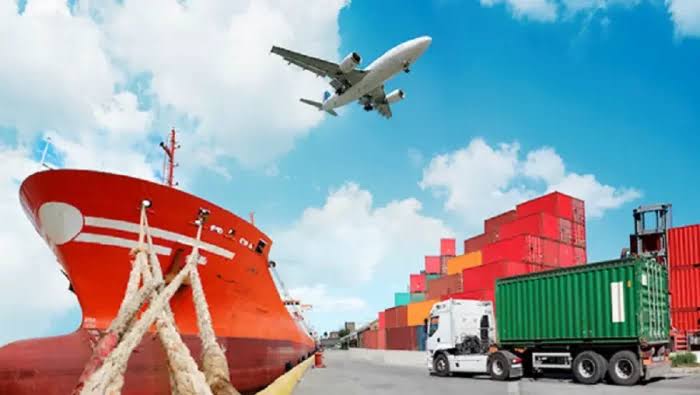Nigeria’s Vice President, Kashim Shetima says the country’s total external trade recorded a trade balance of 6.5 trillion Naira in the second quarter 2024.
Shettima said this at the on going 3rd National Conference on Non-oil Export 2024 with the theme; “Promoting Non-Oil Export for Rapid National Economic Growth”, in Abuja, Nigeria.
The vice president who was represented by the Deputy Chief of Staff to the President, Mr Ibrahim Hadejia stated that out of the trade balance of 6.5 trillion Naira, export accounted for 60.89 per cent equivalent to 19.42 trillion naira.
He noted that due to the progress being made diversification of the economy remains a top priority of the present administration as it will reduce the over dependence of the national economy on oil and gas by promoting the export of value added manufactured products.
“As we strive to develop a flourishing domestic market that is competitive and fully integrated into the global economy, this administration remains resolute in its quest to position the country as a strong economic force by formulating policies and adopting measures that will promote and increase patronage of Made in Nigeria, products enhance market access, increase the competitiveness of the country’s products in the international market, so that we can boost job creation and reduce unemployment.”
“We also intend to strengthen and reform all regulatory frameworks that will not just facilitate seamless trade but enhance the ease of doing business, particularly for Micro, Small and Medium entrepreneurs, MSMEs and business owners.” The Vice President said.
“More importantly, with Nigeria as a signatory to the African continental Free Trade Agreement, boosting about 1.4 billion mark in markets, there is a need for relevant stakeholders from both the public and organized private sector to prefer solutions to the myriad of challenges that are likely to inhibit Nigerian entrepreneurs from maximizing the opportunities offered by the AfCFTA.”
The Nigerian Minister of Industry Trade and Investment, Dr Jumoke Oduwole said the Ministry is committed to repositioning the export sector for national economic growth by aggressively implementing Nigeria’s trade policy to encourage inclusive participation in wealth creation, thereby boosting the national economy.
“We aim to promote the export of high quality value added products that align with global best practices and strategically position Nigeria to take full advantage of the opportunities presented by the African continental free trade agreement that connects over a billion people over 1.3 billion people in a single market, the largest in the world.”
“We will support free trade zones in making sure that we help in attracting investment and generating more activity so that our exports can be more vibrant, so the public private sector partnership is essential, and we believe that together, we shall improve the volumes of our non oil exports in concrete, measurable terms, such as by volume, by value addition and in dollar terms.”
The Executive Secretary of the Nigeria Export Promotion Council, Nonye Ayeni said the aim of the conference is to achieve a platform for ventilating ideas on current and emerging issues affecting non-oil exports and to provide a roadmap that will help stimulate an increase in non-oil exports, thereby diversifying the country’s revenue base away from oil for sustainable economic and inclusive growth.
She revealed that under the Council’s Go Global Go Certification program, 200 exporters were certified free in 2023 with international certifications noting that 400 exporters will be certified for free of charge this year.
“Another thing we find very interesting is NEPC Connect, we have 36 operating offices in all the 36 states, but we realize that we are not able to reach out to the grassroot, we are not able to reach out to everyone, so we created what we call the NEPC Connect to bridge the gap between us and our exporters and use it as an avenue to train them, to equip them with all that they need to on their export journey, so far, we’ve done three series, and we’ve impacted about 11,000 exporters and players in the value chain.”
Olusola Akintonde



Comments are closed.